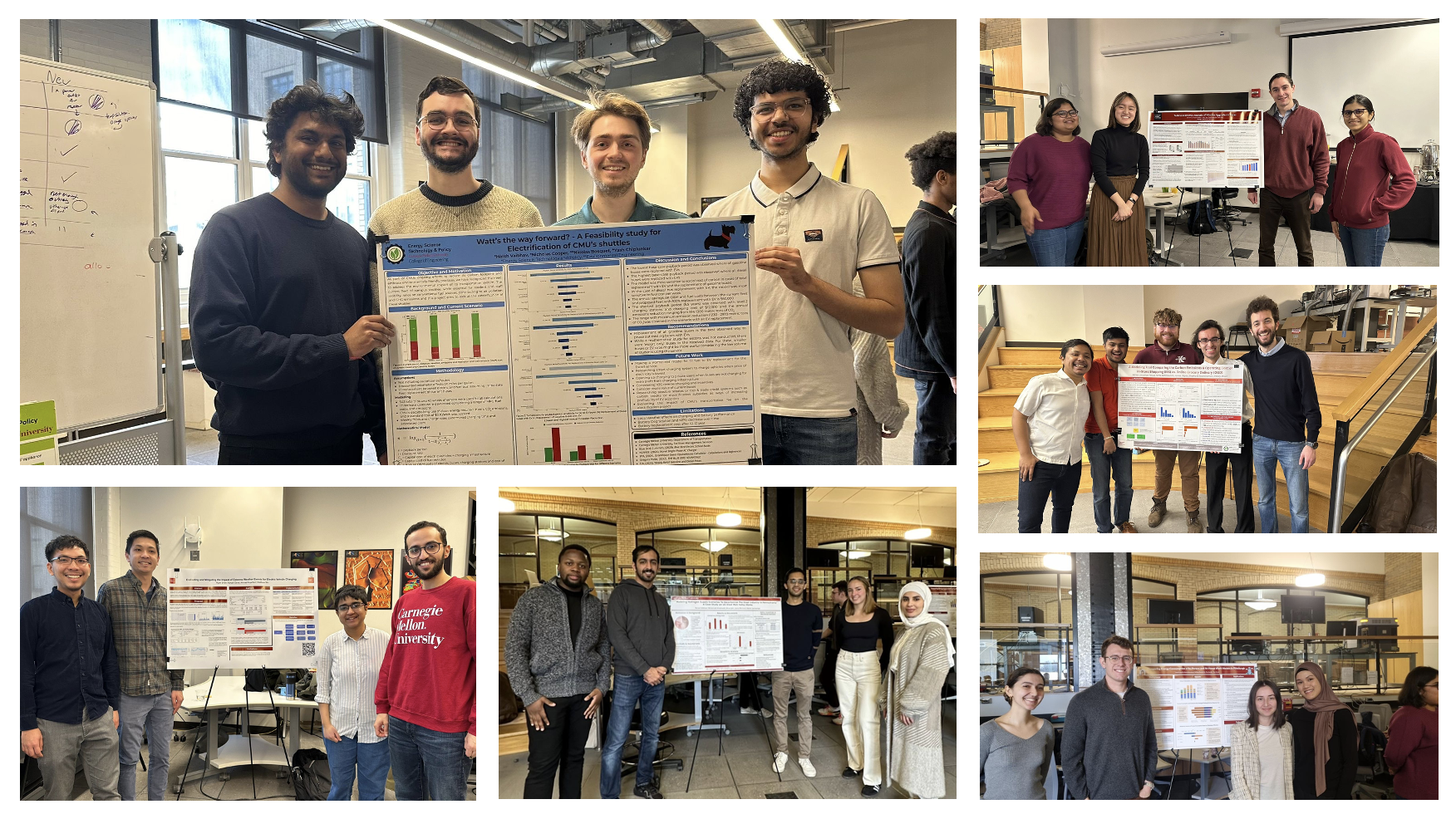
Energy Demand and Utilization Poster Session
By Aditi Iyer and Harsh Vaibhav
The final poster presentation for the spring semester energy-core, Energy Demand and Utilization, held on February 29th, was a culmination of rigorous academic inquiry, interdisciplinary collaboration, and innovative thinking. This poster demonstration served as a platform for students to showcase their research findings through the 6-week project, exchange ideas, and engage in meaningful discussions with peers and faculty.
The course and project, taught by Dr. Mike Blackhurst, culminated in this final poster showcase that witnessed a high level of engagement and active participation from both presenters and attendees. Students from diverse academic backgrounds came together to present their core findings through analytical methods and sensitivity analysis, demonstrating a deep understanding of energy demand and utilization issues. The event provided an opportunity for students to engage in constructive dialogue, share their insights, and receive feedback from the course instructor as well as other students and faculty attending the event. The enthusiasm and passion displayed by participants indicated the significance of the research conducted throughout the course.
The presentations at the final poster event were exceptional, with each poster offering valuable insights and innovative solutions to energy-related challenges. Here is a brief of the posters that were presented
1) "Watt's the Way Forward: A Feasibility Study to Electrify CMU's Shuttle System" by Harsh Vaibhav, Nicholas Cooper, Nicolas Bosquet, and Yash Chiplunkar, provided a comprehensive analysis of the feasibility of transitioning CMU's shuttle fleet to electric vehicles.
2) "Modeling Hydrogen Supply Scenarios to Decarbonize The Steel Industry in Pennsylvania" by Renad Aldebasi, Muhannad Alreshoodi, Dhruv Jain, Laura Reichard, and Martin Semwanga, offered insights into the feasibility of decarbonizing the steel industry through hydrogen-based technologies.
3)"Comparing Energy Consumption of In-Person and At-Home Work Models in Pittsburgh" by Laura Lasariia, Sona Marukyan, Willem Goedecke, Zoe Jacobs, and Nur Arinta provided valuable insights into the energy-saving potential of remote work arrangements.
4) "A Modeling Tool Comparing the Carbon Emissions & Operating Cost of In-Store Shopping (ISS) vs. Online Grocery Delivery (OGD)" by Adrian Jonathan Yosua, Farès Kammourieh, James Hayes, Shashank Swaminathan, and Wesley Mawn addressed the environmental impact of different grocery shopping methods.
5) "Evaluating and Mitigating the Impact of Extreme Weather Events for Electric Vehicle Charging" by Aarushi Dave, Mathew Wu, Ryan Shen, and Ahmad proposed novel strategies to address the challenges posed by extreme weather events on EV charging infrastructure.
6) "Techno-Economic Analysis of Window Upgrades in Texas" by Ted Hart, Aditi Iyer, Arushi Parihar, Liz Barre, and Stephanie Ho provided valuable insights into the financial implications and energy-saving potential of window upgrades in residential buildings.
The final poster presentation event for the Energy Demand and Utilization course at CMU was a resounding success, highlighting feasibility studies for innovative solutions, interdisciplinary collaboration, and dedication to sustainability among students. Through engaging presentations and meaningful discussions, participants demonstrated their commitment to addressing pressing energy challenges and driving positive change. As we reflect on the success of the event, we are reminded of the transformative potential of education, collaboration, and innovative thinking in shaping a more sustainable and resilient future.
